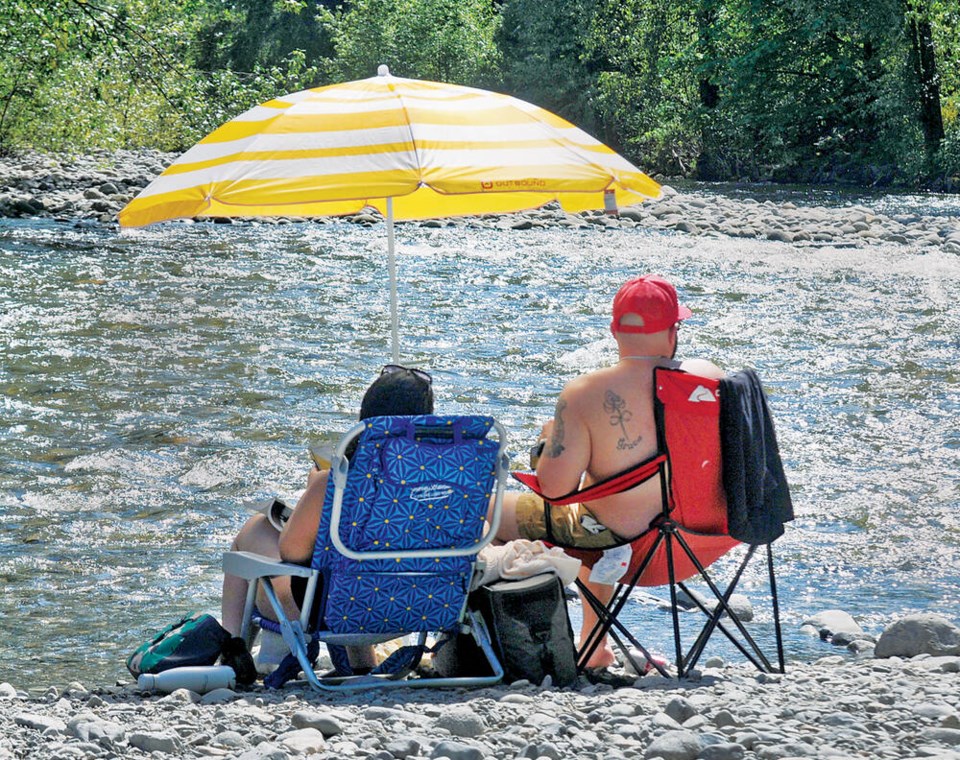Temperature records were broken on the North Shore over the weekend, with the mercury hitting 31.7 C on Sunday.
The sizzling weather smashed an old record for May 14 of 27.6 C, set in 2018, according to Environment Canada.
That wasn’t quite as high as Squamish’s scorching record-breaker of 35.8 set on Sunday, but was among temperature records that fell across the province with the weekend’s unseasonably hot weather. Pemberton and Lytton – where a fire amid scorching temperatures destroyed the town in June 2021 – also topped 35 C on Sunday.
Daily temperature records were also broken on Saturday and Monday on the North Shore, with the thermometer at West Vancouver’s automated weather station hitting 30.3 on Monday afternoon - almost four degrees higher than the previous record of 26.7 C set in 2007.
That makes the temperature between 10 and 15 degrees above normal highs of 16 for mid-May, said Armel Castellan, warning preparedness meteorologist with Environment Canada.
Temperatures are expected to cool off a bit this week, but only by about five degrees – hitting the mid- to upper-20s on Tuesday through Friday, according to Environment Canada. Overnight lows will continue to hover around 13 degrees.
Fortunately, temperatures didn't reach the North Shore’s all-time record for May.
That was during an early heat wave in 1983 when the mercury in West Vancouver hit 34.5 on May 29.
This week’s unseasonably hot weather could well be a sign of things to come this summer.
The latest models are showing “mid-May to mid-June has high probabilities of seeing above seasonal temperatures," said Castellan.
Looking further ahead, “July and August both also show a fairly high probability of also continuing that same trend,” he added.
“We are in for an overall warmer summer than the normal."
While it’s definitely hot, and the high temperatures have come early, Environment Canada stressed the heat this week will not approach the 40 C, or higher, reached during the ‘heat dome’ of late June 2021. It helps that this heat wave has happened early in season, where hours of direct sunlight are fewer, said Castellan.
The unseasonably warm weather has resulted in a sudden melt of snowpack, however, which means local rivers are running much higher than usual. That means some watering holes that are usually safe to swim in early in the summer could be very dangerous right now, said Castellan.



